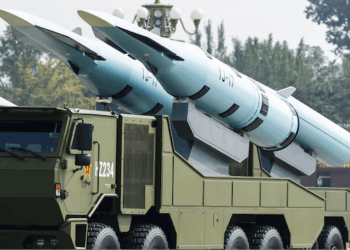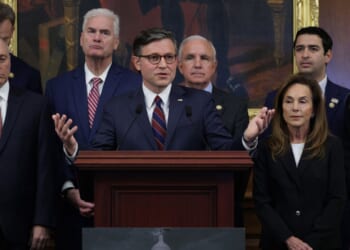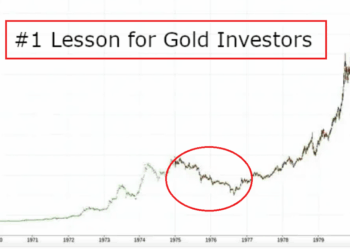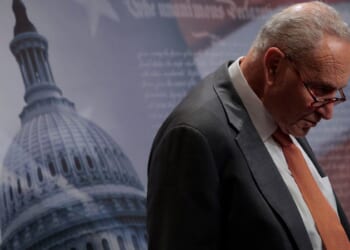By José Niño
Secretary of State Marco Rubio now champions military action against Venezuela in the name of stopping fentanyl from poisoning Americans. Yet his legislative record tells a dramatically different story about his commitment to protecting the public from dangerous drugs. In 2016, while accepting hundreds of thousands of dollars from pharmaceutical companies, Rubio co-sponsored legislation that systematically dismantled the Drug Enforcement Administration’s (DEA) ability to combat the companies fueling America’s deadly opioid epidemic.
Click the Link Below to Listen to the Audio of this Article
Max Blumenthal, editor in chief of The Grayzone and an investigative journalist known for his critical coverage of U.S. foreign policy, recently exposed this stark hypocrisy. In a tweet Blumenthal posted on Oct. 27, 2025, he highlighted:
Marco Rubio says he’s using the U.S. military against Venezuela to stop fentanyl from “poisoning our people” But Rubio was a key sponsor of a 2016 bill that fueled the opioid crisis, blocking the DEA from investigating corrupt drug companies. Rubio was heavily funded by Big Pharma, raking in $290,000 from the industry in 2016 alone. …
It’s just another reason why “Narco” Rubio is a fitting name for the war-crazed secretary of State.
The backdrop to this controversy involves escalating tensions between the United States and Venezuela. The Trump administration has deployed what experts describe as the largest naval presence in the Caribbean since the Cuban missile crisis, including the USS Gerald R. Ford carrier strike group. Since early September, U.S. forces have struck multiple boats in international waters, killing at least 43 people. The administration claims these vessels carried drugs like fentanyl, though U.S. experts note Venezuela is not a significant producer or trafficker of fentanyl, and authorities have provided no evidence substantiating claims about the targeted vessels.
The justification for this military buildup rests on accusations that Venezuela operates as a narco-state, flooding America with deadly drugs. Rubio himself frames the operations as necessary to stop substances from poisoning American citizens. However, former DEA international operations head Mike Vigil has questioned both the effectiveness and accuracy of these operations, noting that most drugs enter through legitimate ports of entry along the Mexican border. Targeting individual boats, he contests, does little to disrupt broader distribution networks.
This aggressive posture contrasts sharply with Rubio’s actions during the height of the opioid crisis. In 2016, he served as a key co-sponsor of the Ensuring Patient Access and Effective Drug Enforcement Act, legislation that unanimously passed Congress and received President Barack Obama’s signature on April 19, 2016. The bill fundamentally altered the DEA’s enforcement capabilities by redefining critical terms that had previously allowed swift action against suspicious drug distribution.
According to the text of the law itself, the legislation changed the definition of imminent danger to public health or safety from a broad standard to requiring proof of a substantial likelihood of an immediate threat of death, serious bodily harm, or abuse of a controlled substance. Per DEA Chief Administrative Law Judge John J. Mulrooney II, this language created an exceedingly high burden that is nearly impossible to meet.
The National Association of Attorneys General (NAAG) later noted the procedure resembled a state legislature mandating that law enforcement authorities allow shoplifting suspects caught in the act to outline how they intend to replace purloined items on store shelves.
The legislation effectively stripped the DEA of its ability to issue immediate suspension orders against drug manufacturers and distributors, even when their actions posed clear dangers to public health. This hamstringing of enforcement came at a critical moment. According to data from the NAAG’s letter on the opioid epidemic, 2016 saw over 64,000 overdose deaths, exceeding American casualties during the entire Vietnam War. The crisis has since claimed over 500,000 American lives.
By following the money, the contradictions become even starker. According to OpenSecrets, Rubio received $289,000 from the pharmaceutical and health products industry during the 2016 election cycle. Other analyses indicate he collected nearly $400,000 in donations from pharmaceutical companies in the 2015–2016 cycle.
The pharmaceutical industry invested heavily in shaping this legislation. Per Sen. Tammy Baldwin’s (D-Wisc.) office, companies spent over $880 million on campaign contributions and lobbying from 2006–2015. The Pharmaceutical Research and Manufacturers of America alone spent more than $19 million on federal lobbying in 2016, according to Baldwin’s office.
The consequences of this legislation became undeniable when its primary House sponsor, former Rep. Tom Marino (R-pa.), faced public scrutiny. When reports emerged in October 2017 detailing how the law had hampered DEA enforcement efforts during the opioid crisis, Marino was forced to withdraw his nomination as Trump’s drug czar.
According to NPR, The Washington Post and a “60 Minutes” investigation revealed that the legislation helped pump more painkillers into parts of the country that were already in the middle of the opioid crisis. Per multiple news sources, including the Voice of America and Politico newspaper, the damaging revelations made Marino’s position untenable.
The contradiction is clear and damning. While Rubio now deploys warships and authorizes lethal force against Venezuelan boats, claiming to protect Americans from drugs poisoning the nation, his legislative record shows he once prioritized pharmaceutical industry profits over DEA enforcement powers. That same industry flooded American communities with addictive opioids while Rubio’s legislation made it nearly impossible for regulators to stop them.
This history raises serious questions about whether current Venezuela policy reflects genuine concern for public health or simply provides convenient cover for America’s broader geopolitical ambitions in Latin America.
(function() {
var zergnet = document.createElement(‘script’);
zergnet.type=”text/javascript”; zergnet.async = true;
zergnet.src = (document.location.protocol == “https:” ? “https:” : “http:”) + ‘//www.zergnet.com/zerg.js?id=88892’;
var znscr = document.getElementsByTagName(‘script’)[0];
znscr.parentNode.insertBefore(zergnet, znscr);
})();


























